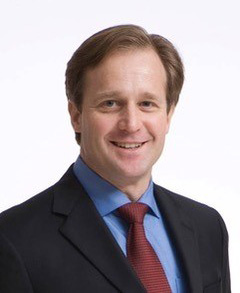March 15, 2021
Bringing Business Acumen to the CHRO Role
 Early in his career, retired Honeywell CHRO Mark James took courses and training in both finance and HR. As he ascended the ladder as an HR professional, he saw his multifaceted background as a key to success. In 20 years at Honeywell, including 13 as CHRO, he not only led the HR function as a data-driven, business-minded leader, but also at various times oversaw communications, procurement, flight operations and other areas that aren’t traditionally under HR’s purview.
Early in his career, retired Honeywell CHRO Mark James took courses and training in both finance and HR. As he ascended the ladder as an HR professional, he saw his multifaceted background as a key to success. In 20 years at Honeywell, including 13 as CHRO, he not only led the HR function as a data-driven, business-minded leader, but also at various times oversaw communications, procurement, flight operations and other areas that aren’t traditionally under HR’s purview.
“Professors from both gave me a hard time about why I would waste my life with the other side,” James recalled about the courses he took in HR and finance. “But it turned out to be helpful because I learned to understand the business side of the HR job better than most HR people did.
Before James retired in 2020, we spoke with him as part of our series of conversations with leading CHROs about their career paths and the keys for success. In the interview below, shortened for brevity, James shared his experience leading the role and the elements of success for future CHROs.
What were your expectations about the CHRO role while going into it? What surprised you about the role?
One thing you deal with as the HR leader that you don't deal with in other HR roles leading up to that is owning the overall design and cost of your HR. You're delving into areas you normally wouldn’t have involvement with, other than from an administrative perspective.
The biggest change is that you’ve got to be prepared for the pressure of being ultimately accountable for the HR function. Whether conscious or not, when you’re in any role other than CHRO, there’s always someone above you to go who can step in if you need something or don’t agree with something. When you're the CHRO, you’re it.
What experiences do you think were most helpful in preparing you to be CHRO?
What sets you up for greater responsibility is business acumen. Do you understand your business? Do you know how your company makes money? Do you understand concepts like working capital and free cash flow, and why that matters? Whether you're the IT person or the HR person or the CFO, the more you understand about the whole end-to-end, about what makes a business tick, the better off you are in making decisions that help drive your company forward.
Instead of just benchmarking HR performance, what helps is looking at things that work well in other functions — sales, or engineering, or general management, or supply chain — and how we can lift those into HR for a competitive advantage. For example, we have world-class statistics in our HRIS group — but that all came from studying supply chains that run really well.
How do you think the expectations of the CHRO of the future will change?
The CHRO has to be focused on driving the top and the bottom line of your organization, and not just in an HR type way. You have to be both strategic and be good at operational execution. It's not good enough to just do one or the other. An HR person who is very articulate and strategic but can't really move the army across the river is going to be out of a job. The person who gets the army across the river but doesn’t know if it’s the right river to cross or can’t convince people that it is the right one is going to struggle because people will feel like they're just executing and keeping up, rather than really moving forward. There’s an expectation that the CHRO must drive culture, financial results and change in a courageous, relentless way.